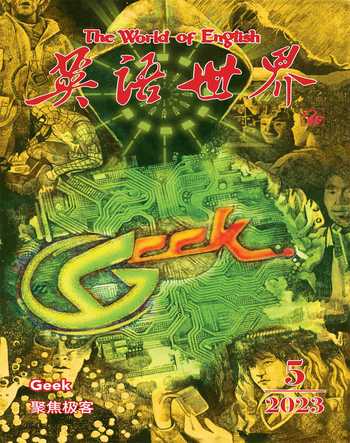How Cultures Around the World Think About Parenting不同文化育儿面面观
2023-05-19埃米·S.崔苏扬/译
埃米·S.崔 苏扬/译
The crisis of American parenting is that nobody knows what the hell theyre doing. Many American parents seek the advice of expert after expert in the field in order to succeed at one goal: to raise the happiest, the most successful, and the most well-adjusted leaders of the future.
美国式育儿的危机在于,没人知道父母们究竟在做什么:众多美国父母满世界寻求专家建议,意在实现一个目标——培养出一等幸福、顶级成功、最具适应力的未来领导者。
But what dangers lay in thinking that there is one “right” way to parent? How much of how we parent is actually dictated by our culture? How do the ways we parent express the essentialness of who we are, as a nation?
但执着于一种“正确”的育儿套路,会面临哪些危险?文化究竟在多大程度上左右着我们的育儿方式?育儿方式又如何反映我们的民族特质?
In reporting her book All Joy and No Fun: The Paradox of Modern Parenthood1, says Jennifer Senior, when she asked mothers who they went to for parenting advice, they named friends, websites and books. None named their own mothers. Only the most current child-rearing strategies were desired, in order to best position their children for achievement in the future.
詹妮弗·西尼尔在推介自己的新书《所有的幸与不幸:现代亲子悖论》时说,她曾问过妈妈们,碰到育儿问题,她们向谁求教?答案是朋友、网站和书本,却没人提自己的母亲。为了让子女占据有利位置以在未来取得成功,她们只追最新的育儿秘笈。
In other words, that which is most American about us—our belief that the future is unwritten—is what is driving us mad as parents.
换句话说,美国人相信未来并非命定,这一观念是美国人最突出的特性,也是让美国父母在育儿上如此抓狂的原因。
“You dont see the handwringing in other places around the world,” says Christine Gross-Loh, author of Parenting Without Borders. “People understand that there is a way to do things.”
“在世界其他地方,见不到这种极端的育儿焦虑。”《育儿无国界》的作者克里斯蒂娜·格罗斯-洛感叹道,“人们都明白,船到桥头自然直。”
In Norway, childhood is strongly institutionalized, says Norwegian sociologist and economist Margunn Bjornholt. Indeed, most children enter state-sponsored daycare at 1 year old (parents first get almost a full year of state-sponsored leave from work), then enter school and organized activities.
挪威社會学家、经济学家马尔贡·比约恩霍尔特说,挪威人的童年高度圈养化。确实如此,多数孩子一岁进公立日托(父母先享有近一整年的国家付薪产假),然后升入小学并参加各类团体活动。
Norwegians believe that it is better for children to be in daycare as toddlers. At daycare, methods reflect the countrys fetishistic dedication to fresh air. So even in Oslo, where arguably the indoor air quality is fresher, and even in Scandinavian2 winters, children are bundled up and taken outside to nap in their strollers.
挪威人认为,幼儿刚会走路时就送进日托比较好。日托的一些育儿方法反映出,挪威人对新鲜空气极度痴迷。所以,即使在奥斯陆这个按理室内空气质量优于室外的城市,甚至在斯堪的纳维亚寒冷的冬季,也能看到孩子们被裹得严严实实带到户外,在婴儿车里小睡。
Craziness? Culture. In Japan, where Gross-Loh lives part of the year, she lets her 4-year-old daughter run errands with her 7-year-old sister and 11-year-old brother—without parental supervision. Her kids dont hesitate to take the Tokyo subways by themselves and walk on busy streets alone, just like their Japanese peers. But when she comes back to the States, Gross-Loh doesnt allow the same.
疯狂吧?这就是文化。格罗斯-洛每年都在日本居住一段时间,她会让4岁的女儿跟着7岁的姐姐和11岁的哥哥一起去当小跑腿,家长也不看着。就跟日本的同龄孩子一样,兄妹三人自己乘坐东京的地铁,自己独自走在熙熙攘攘的大街上,一点不犯怵。但是一回美国,她就不会让孩子们这么做。
“If I let them out on their own like that in the U.S., I wouldnt just get strange looks,” she says. “Somebody would call Child Protective Services.”
“要是我在美国让孩子这样独自出门,不只会收到别人的异样目光,还会有人给儿童保护服务局打电话。”她说。
Both in Japan and Norway, parents are focused on cultivating independ-ence. Children do things alone early, whether its walking to school or to the movies. The frames, however, are different. In Scandinavia, there is an emphasis on a democratic relationship between parents and children. In Sweden especially, the “rights” of a child are important. For example, a child has the “right” to access their parents bodies for comfort, and therefore should be allowed into their parents bed with them in the middle of the night. If a parent doesnt allow them, they are both denying them their rights and being a neglectful parent. In parts of Asia, meanwhile, co-sleeping with a family member through late childhood is common. Korean parents spend more time holding their babies and having physical contact than most. But within a family, obedience is key—not democracy.
在日本和挪威,父母都注重培養孩子的独立性——孩子从小独立做事,不论是步行上学还是去看电影——但两种体系又有区别。斯堪的纳维亚地区强调民主的亲子关系,特别是在瑞典,孩子的“权利”很重要。比如,孩子有“权利”依偎在父母身边寻求安慰,所以半夜应被允许上父母的床。父母不让的话,就是剥夺孩子权利、不管孩子。在亚洲一些地区,挺大的孩子与家庭成员同睡很常见。在韩国,父母抱孩子和与孩子身体接触的时间比大多数国家的父母要长,但关起门来,服从——而非民主——才是关键。
In Jewish tradition, says Wendy Mogel, a clinical psychologist and author of The Blessing of a B Minus: Using Jewish Teachings to Raise Resilient Teenagers, theres a teaching in the Talmud3 that every parent has an obligation to teach their child how to swim.
临床心理医生温迪·莫格尔是《中等偏下的好处:听犹太真言,养皮实孩子》一书的作者。她说,犹太人遵从《塔木德》的一条教诲:做父母的,都有责任让孩子学会泅水。
“Were supposed to be raising our children to leave us,” she says. “They must develop self-reliance and resourcefulness and resilience, which is a challenge, because we must allow our children to make mistakes.”
“犹太人养育子女是期望他们未来离家可以独立生活,孩子必须自立、善应变、有韧性,这不容易,因为我们必须允许孩子犯错。”她说。
This is enormously hard for American parents to do. “Parents are genuinely anxious about really big things like the melting ice caps and collapsing economy and the unending4 stories about violence and predators5 and college admissions,” says Mogel. “They displace all of these fears of things they cant control onto the one thing they believe they can control, which is children.”
对美国父母来说,这极难做到。“其实父母很担心一些真正的大事,如冰盖融化、经济崩溃、无休止的暴力事件和尾随作案、高校招生等,可这些问题他们无力控制,于是就将由此产生的忧虑转移到他们唯一自感可控的事情上,那就是孩子。”莫格尔说。
American parents are highly focused on making sure that their childrens talents are groomed6 for success. Sara Harkness, a professor in the Department of Human Development and Family Studies at the University of Connecticut and a pioneering researcher on parenting and culture, found that nearly 25 percent of all of the descriptors7 used by American parents were a derivation of “smart,” “gifted” or “advanced.” “Our sense of needing to push children to maximize potential is partly driven by fear of the child failing in an increasingly competitive world where you cant count on the things that our parents could count on,” Harkness suggests.
美國的父母心心念念想的是培养孩子各项才能,为成功铺路。萨拉·哈克尼斯是康涅狄格大学人类发展与家庭研究系教授,是率先研究育儿与文化问题的学者。她发现,美国父母描述孩子时使用的所有语词中,有近1/4衍生自“聪明”“天赋”和“先进”。哈克尼斯表示,“必须最大限度挖掘孩子潜力这样的想法部分源于我们担心孩子在竞争日益激烈的世界中失败,过去我们的父母能依靠的那些东西,我们现在已经指望不上了” 。
This is not unlike many Asian nations, where parenting, from a very early age, is focused highly on academics and college acceptance. One Korean mother who Harkness interviewed played English tapes to her 2-month-old baby “because its never too early to start,” she says. The parents primary role is as an educator, and the childs role is to respect the parent and repay them with sacrifices.
这与亚洲许多国家并无二致。按照亚洲人的育儿观,在孩子很小的时候就应特别着力于学习和考大学。哈克尼斯采访过的一位韩国妈妈给两个月大的孩子播放英语磁带,说“起步越早越好”。韩国父母的首要角色是教育者,孩子则要尊重父母、不惜做出牺牲回报父母。
In the Netherlands, meanwhile, parents used “smart” to describe their children only 10 percent of the time. Dutch parents believe strongly in not pushing their children too hard.
而在荷兰,父母用“聪明”这个词谈论孩子的几率只有1/10。他们坚信,不能把孩子逼得太厉害。
Instead, regularly scheduled rest, food and a pleasant environment are the top priorities for Dutch parents.
荷兰父母优先考虑的是让孩子按时按点休息、吃饭,营造快乐环境。
The American desire for solutions is starting to radiate outwards. A growing awareness of the scarcity of resources, and the potential for true social mobility, is increasing the pressure on parents globally to “parent” their kids, as a verb.
美国人的求解欲正在向外扩散。人们日益认识到资源短缺以及社会流动可能真正实现,这种意识加大了全球父母“鸡娃”的压力。
The U.S., home to immigrants who bring their own traditions from around the world, is uniquely positioned to both learn and let go. American parents can recast8 their scriptlessness as they see fit, drawing on both global tradition and present theory. Will they? Tomorrows children may decide.
美国是个移民国家,世界各地的移民带来了自己的传统,因此美国人有得天独厚的条件吸收和摒弃。无论是各国传统还是现有理论,只要觉得合适,美国父母都可以吸收利用,重新打造他们的无脚本教育。他们会这样做吗?未来的孩子们会做出抉择。
